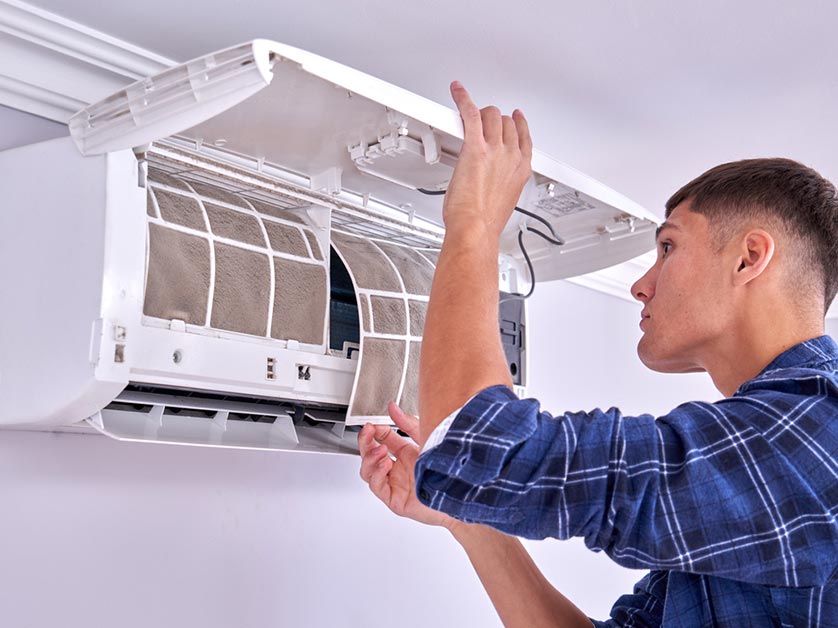What Happens if I Don’t Change My HVAC Filters?

Maintaining a well-functioning HVAC system is crucial due to the area’s varying temperatures and air quality issues linked to agricultural activities and traffic emissions. A key task in this maintenance routine that often goes overlooked is the regular changing of HVAC filters. In this article, Superior Air explores the consequences of neglecting this crucial maintenance step, offering insights into how it affects both your home’s environment and your HVAC system’s longevity.

Decreased Air Quality and Health Risks
Furnace filters play a pivotal role in trapping dust, pollen, mold spores and other airborne particles. Neglecting to replace these filters can lead to a buildup of these pollutants in your heating and cooling system. Consequently, this diminishes the indoor air quality of your home, posing a health hazard, especially to those with allergies, asthma or other respiratory conditions. Dust and allergens accumulating on clogged filters can significantly degrade your home’s air, potentially leading to increased respiratory issues and discomfort.
Elevated Utility Bills
A clogged or dirty HVAC filter obstructs the normal airflow, forcing the system to work harder to maintain the desired temperatures. This inefficiency results in higher energy consumption, reflected in your monthly bills. If you use a lot of energy for air conditioning in summer and heating in winter, the additional costs can be substantial.
Potential for HVAC System Damage
When air filters are not regularly changed, it doesn’t just affect air quality and costs; it can also lead to serious damage to the HVAC system itself. Restricted airflow can cause the system to overwork, potentially leading to overheating and, eventually, breakdowns. Such failures not only cause inconvenience during extreme weather but also lead to costly repairs or even the need for a complete system replacement.
Mold and Mildew Growth
A dirty filter can lead to moisture buildup in the system, creating an ideal environment for mold and mildew. This can cause extensive damage to your HVAC system and pose serious health risks as spores circulate through your home’s air.
How to Manage Your HVAC Filters
Given the wide-ranging impacts of not changing HVAC filters, it’s best to adhere to a regular maintenance schedule. Depending on your living situation, such as the presence of pets, the number of occupants, and the general air quality in your area, you might need to change your filters as frequently as every one to two months or as infrequently as every six months. Always consult the manufacturer’s recommendations for your specific HVAC system and consider using higher-quality filters if the outside air quality in your region is particularly poor.
Ignoring the simple task of changing your HVAC filters can lead to a host of problems—from deteriorated air quality and health risks to increased energy bills and potential system breakdowns. At Superior Air, we provide HVAC maintenance solutions in Visalia, CA, and surrounding areas to keep your system efficient and your home healthy. Call us at (559) 734-2002 or complete our contact form to request an estimate.
Recent Posts
The Role of HVAC in Healthcare Facilities
The role of HVAC systems in healthcare facilities cannot be overstated. These systems play a…
What Issues Do We Usually Find During AC Tune-Ups?
When it comes to maintaining a comfortable and healthy environment in your home, especially in…
Understanding Dual-Fuel Home Heating Systems
With the evolution of home heating technologies, homeowners are constantly looking for more efficient, cost-effective,…
A Seasonal HVAC Maintenance Checklist for Year-Round Comfort
Ensuring your HVAC system runs efficiently year-round is crucial not only for your comfort but…
Where NOT to Install a Ductless Mini-Split Unit
Ductless mini-split systems offer a flexible and energy-efficient option for heating and cooling your home.…
Does Zoned HVAC Really Save You Money?
In the realm of energy conservation and home efficiency, the concept of zoned HVAC systems…



